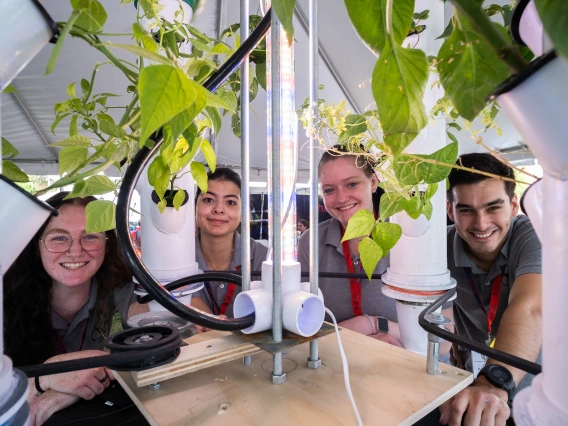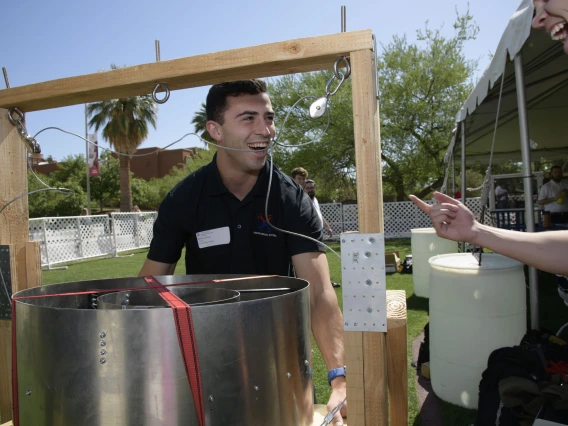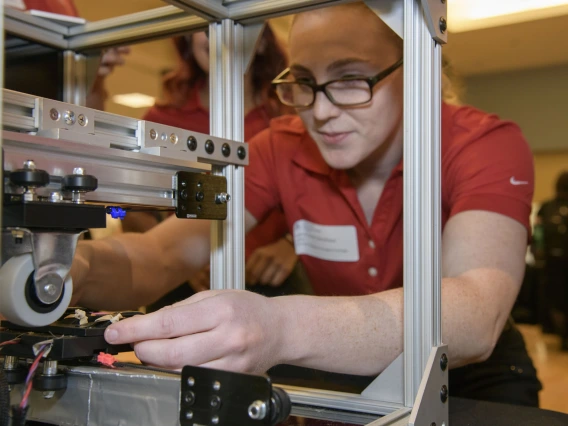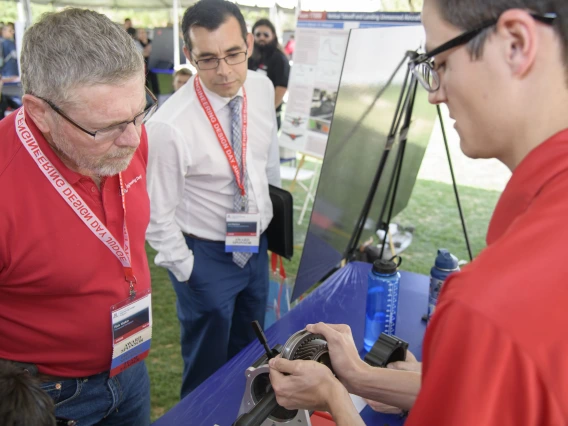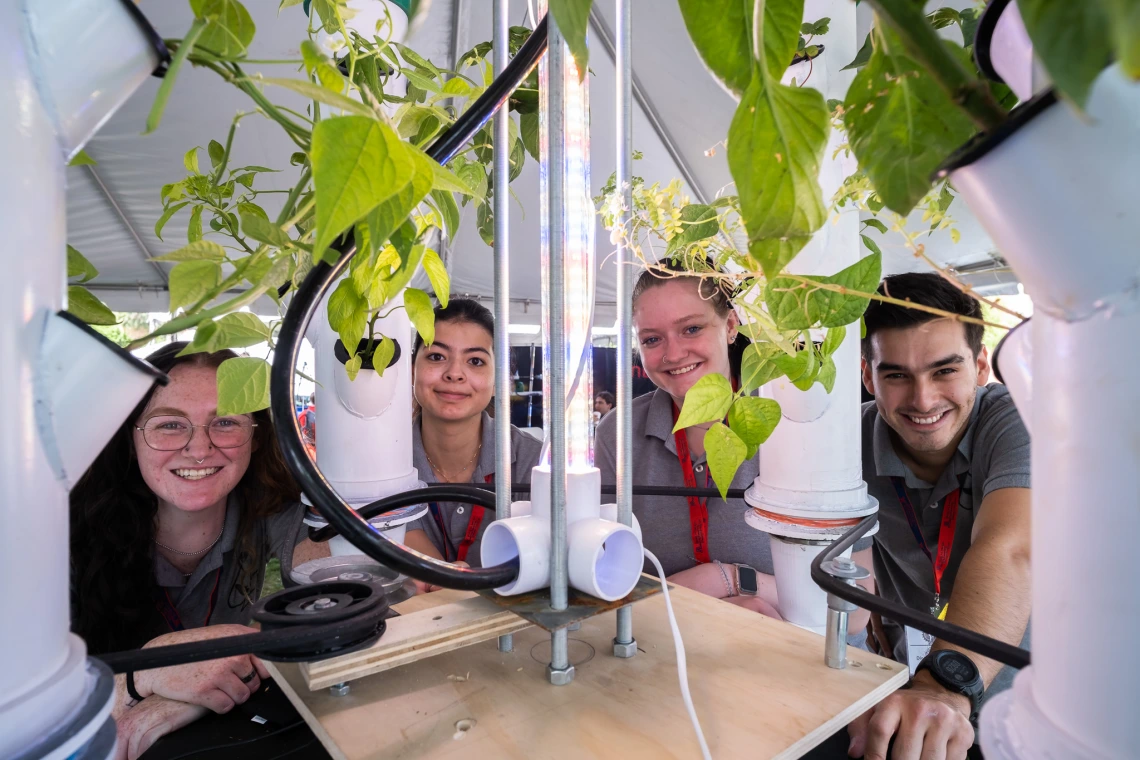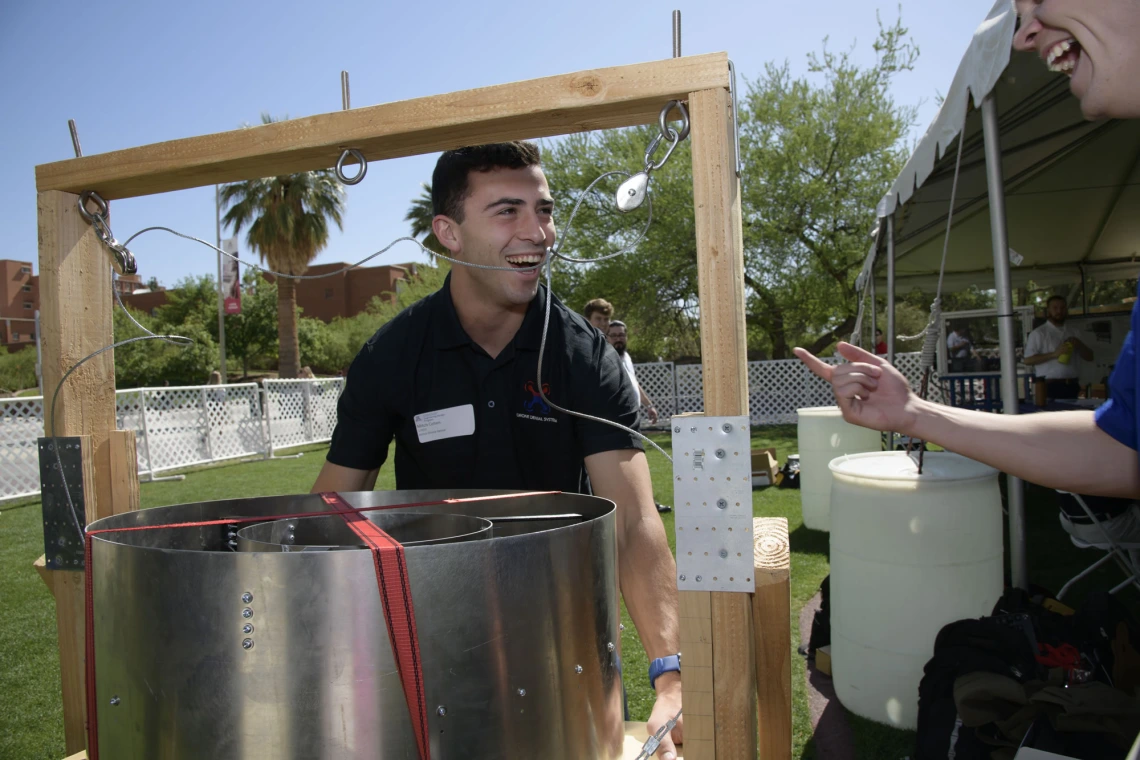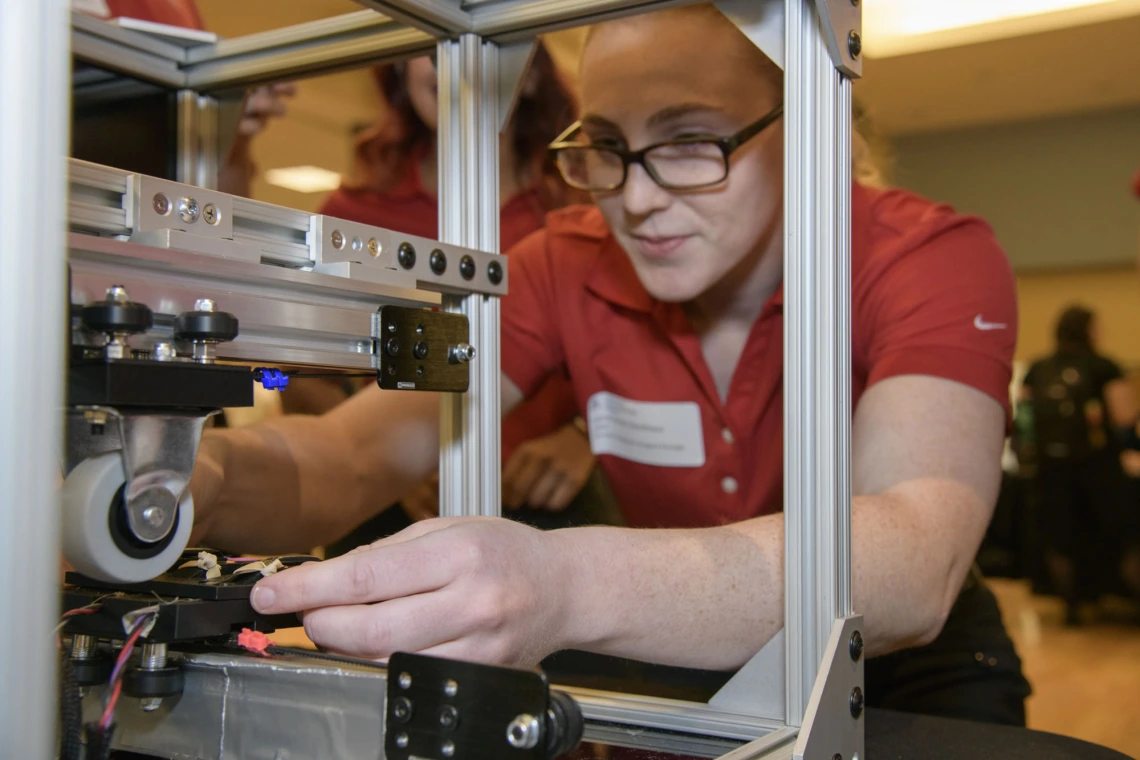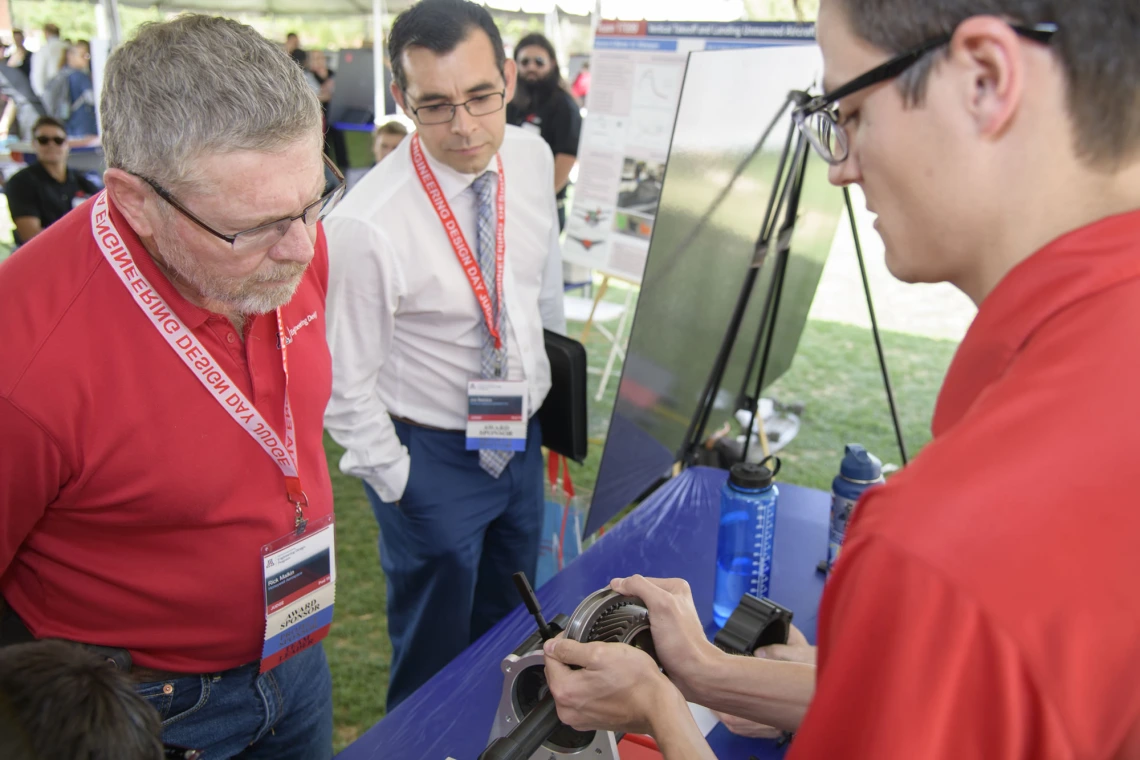As a sponsor you provide...

A Meaningful Project
With more than 450 students enrolled in the capstone course, your company and every project you submit is exposed to and considered by eager, motivated students. Every project with appropriate scope and content is assigned to a student team.

Industry Mentorship
You provide a technical mentor – the student team’s “client” – who is engaged with the project and will act as the team’s customer. This mentor should attend at least one on-campus design review each semester (either in person or remotely through video conference) and will need to meet with the team periodically for project consultations.

On-Time Submissions
Prospective sponsors must submit their projects by mid-July of each year to allow the program enough time to assign student teams and mentors and to ensure that the project is doable over the allotted time.

Additional Support
Sponsors also have the option of providing additional cash or in-kind funding for the direct cost portion of their projects. Additional funding is at the discretion of the sponsor, and can be discussed with the program coordinators if questions arise.
Guidelines for Scoping a Project
Our students are drawn from several engineering programs and specialties:
- Aerospace engineering
- Agricultural and biosystems engineering
- Biomedical engineering
- Electrical and computer engineering
- Engineering management
- Environmental engineering
- Industrial engineering
- Materials science and engineering
- Mechanical engineering
- Optical sciences and engineering
- Software engineering
- Systems engineering
We look to you for suggestions as to the best team composition from among these disciplines, but the composition may have to change depending on availability of the desired disciplines.
Assume that you will have a team of 5-6 students working on the project for an average of 10 hours per week per student over the academic year. Essentially that amounts to about 1,500-1,800 total hours of labor. Challenging the students is a good thing provided the project is doable with the available resources.
We prefer that sponsors name a key contact and an alternate so that students can always get in touch with the sponsor when questions arise. The more contact between a sponsor and team, the better the project outcome in general.
We ask that sponsors provide a brief description of the project goals and required deliverables. It is helpful to supplement that with detailed quantitative requirements that will become the focus of the project planning and design for the remainder of the year. The development of the requirements and a detailed Requirements Review is the first major team activity in August/September.
The student teams go through Preliminary Design Review and Critical Design Review during the fall. A detailed design report with a draft acceptance test plan is developed in December. We invite sponsors to attend the Requirements Review, PDR and CDR if possible.
If the design is approved by the sponsor and UA-provided mentor, the team implements their design and tests the project during the spring, and delivers the final product to the sponsor in May after showing it on Craig M. Berge Design Day.
Finally, remember that this is a student project, and although the vast majority of our projects are successful fully or in large part, we are unable to guarantee that success. Please don’t give students a project that is on a critical path for your company.
Check out our Sample Project Proposal
Project Costs
The participation fee for industry sponsors of interdisciplinary capstone projects is $12,500. This fee covers direct project costs and indirect costs such as the administration of the program, mentor expenses, the maintenance of the course database and website, shop work, and Open House and Craig M. Berge Design Day activities. The participation fee for faculty or student club, start-up, or non-profit sponsors will be $8,500.
Sponsors have the option of providing additional cash or in-kind funding (materials, equipment, specialized manufacturing help, etc.) for their projects if needed. Additional funding must be approved by the program coordinator.
Notes on ITAR
Due to the diverse student population and the necessity for access to public research locations for project completion, the University cannot accept ITAR-restricted projects. Include within the project summary if student access to your facility is required. If your facility has restricted access to U.S. persons or U.S. permanent residents only, this should be indicated by checking the applicable box within the project submission process.
Notes on Intellectual Property
The University of Arizona respects the intellectual property ownership rights of its sponsors and will not seek to own the sponsor’s IP provided to the students or IP that the students may conceive or create during the course of the project. If, however, the sponsor is a University of Arizona employee(s), then the IP will be owned by the University of Arizona or student per the UA IP Policy.
Background IP provided by any sponsor, including University of Arizona employee/employee-group sponsors, such as IP surrounding the sponsor’s ideas, written words/code, products, or processes that existed before the submission will remain the property of the sponsor or UA, as the case may be. All patentable and copyrightable IP conceived or created during the execution of projects will also be the property of the sponsor, unless it is expressly donated to the public or the students.
Prior to engaging in a project, students will be informed of their obligation to assign project IP to the sponsor. Students who do not wish to assign IP to the sponsor will be asked to work on projects that do not require IP assignment. Sponsors outside UA should supply an intellectual property form approved by their company to students for signatures if it is necessary. University of Arizona sponsors will be provided a University of Arizona assignment form that students will be asked to sign.


